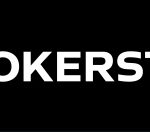Switzerland’s Gambling Supervisory Authority (GESPA) has filed a criminal complaint against FIFA over its NFT-based platform, FIFA Collect, claiming that certain features operate as unlicensed gambling under Swiss law, particularly lotteries and sports betting.
Headquartered in Zurich, FIFA could face penalties if prosecutors decide to pursue the case, though the platform remains active. FIFA Collect, built on blockchain technology, allows users to buy, trade, and collect NFTs representing World Cup highlights. One of its key offerings, the “Right-to-Buy” (RTB) NFTs, grants holders early access to purchase tickets for the 2026 World Cup in North America. These NFTs start at around $999, with resale values reaching up to $30,000 depending on team performance and rarity.
GESPA launched its preliminary inquiry in October 2025 after identifying potential gambling elements, focusing on prize draws and random reward mechanisms where users pay for a chance to win. Under Swiss law, any activity involving chance, stake, and prize requires a valid gambling license, even if operated from abroad but accessible to Swiss residents.
The regulator determined that chance-based NFT drops and fluctuating RTB token values resemble betting on sports outcomes. GESPA stated that these services are “unlicensed in Switzerland and therefore illegal,” prompting a formal complaint to prosecutors. Director Manuel Richard confirmed that further details remain confidential as law enforcement takes over the investigation.
Manuel Richard, GESPA Director, mentioned:
The case could disrupt its $11 billion revenue forecast for 2023–2026, where ticketing and digital sales play a major role. It may force enhanced compliance, such as KYC/AML checks, geo-blocks for Swiss users, or redesigned NFT mechanics to avoid “gambling-like” elements. FIFA has not publicly responded yet.
The case underscores growing regulatory attention toward NFTs that merge digital collectibles with real-world rewards. Legal analysts suggest it could set a key precedent across Europe for defining chance-based digital assets, potentially influencing blockchain initiatives in gaming, fan engagement, and tokenization.
Switzerland’s gambling regulations are primarily governed by the Federal Act on Gambling (BGS), enacted in 2019, which covers both physical and online gambling. Under the BGS, gambling is defined as any activity involving a monetary stake, an element of chance, and the possibility of a prize, including lotteries, sports betting, casino games, and skill-based games where chance plays a significant role.
In the FIFA Collect case, the Swiss Gambling Supervisory Authority (GESPA) determined that the platform’s “Right-to-Buy” (RTB) NFTs and random draw features qualify as gambling, as they involve monetary stakes and chance-based outcomes. Since all gambling accessible to Swiss residents requires a GESPA license, regardless of where the operator is based, FIFA’s unlicensed platform violates Article 130 of the BGS, which prohibits such activities.
Licenses are restricted to Swiss-based entities: casinos for casino games, and organizations such as Swisslos and Loterie Romande for lotteries and sports betting. Foreign operators cannot obtain a license unless partnering with a Swiss license holder. Because FIFA, headquartered in Zurich, operates its NFT platform (collect.fifa.com) within Swiss jurisdiction, it is subject to these rules.
Operating or promoting unlicensed gambling accessible in Switzerland is a criminal offense, punishable by fines or imprisonment under Article 130. Online gambling is legal only through licensed Swiss operators, while unlicensed foreign platforms can be blocked by GESPA or the Swiss Federal Gaming Board, with ISPs required to restrict user access.
Furthermore, while winnings from licensed operators are tax-exempt up to CHF 1 million, unlicensed platforms and their operators face taxation on gross gaming revenue. The chance-based structure of NFT “drops” resembles lotteries, while the RTB NFTs function similarly to sports bets, as their value depends on unpredictable tournament outcomes.
By filing a criminal complaint, GESPA reinforced Switzerland’s strict approach to gambling-like digital products that operate without authorization. The case illustrates how emerging technologies like NFTs can fall under gambling laws when they combine stakes, chance, and rewards, a ruling that could influence how global platforms design future offerings to comply with European regulations. Swiss prosecutors will now determine whether to proceed with formal charges.








